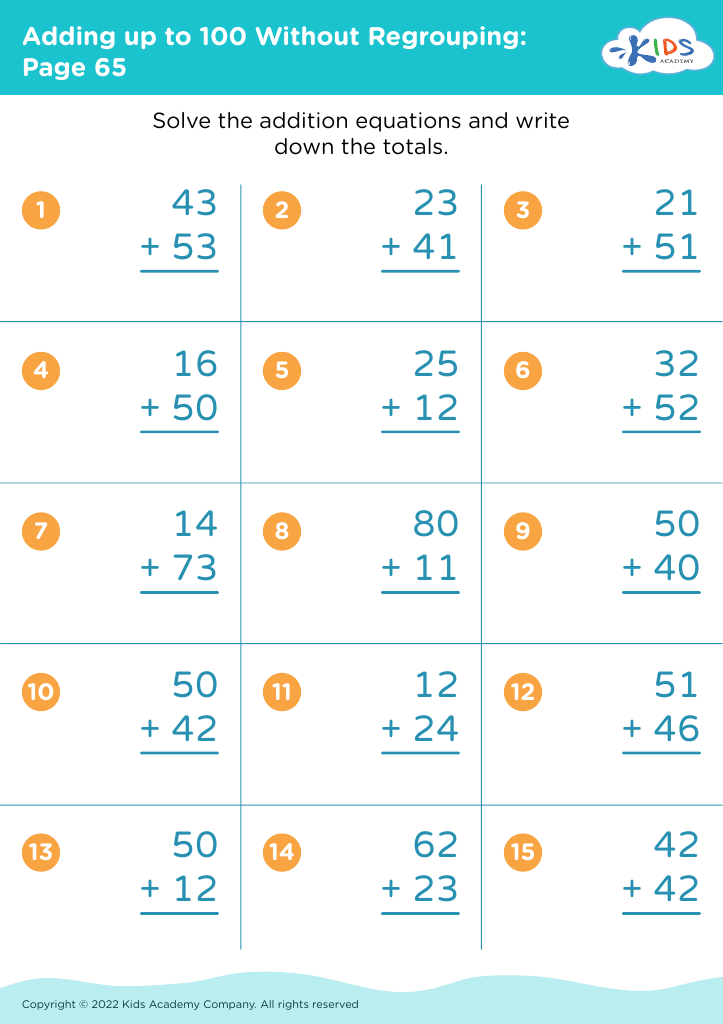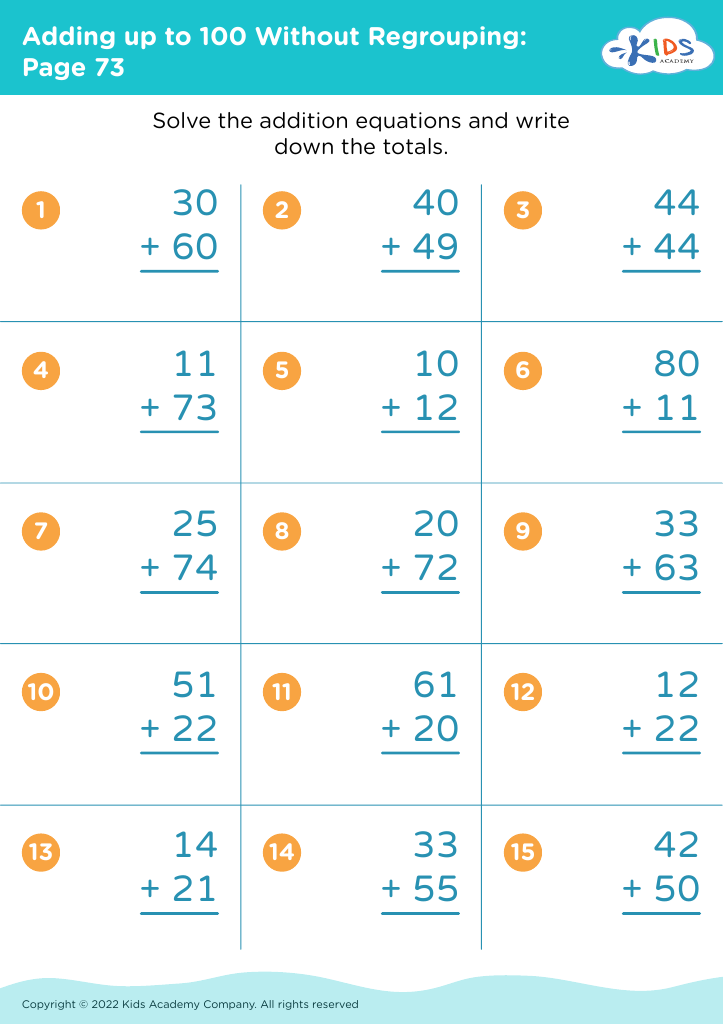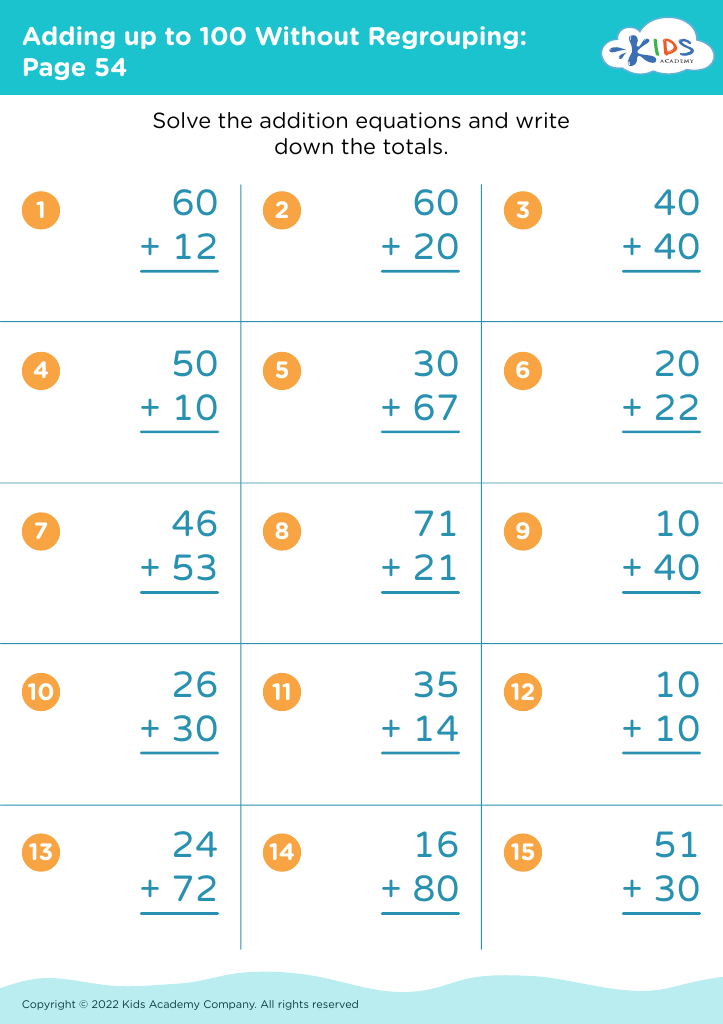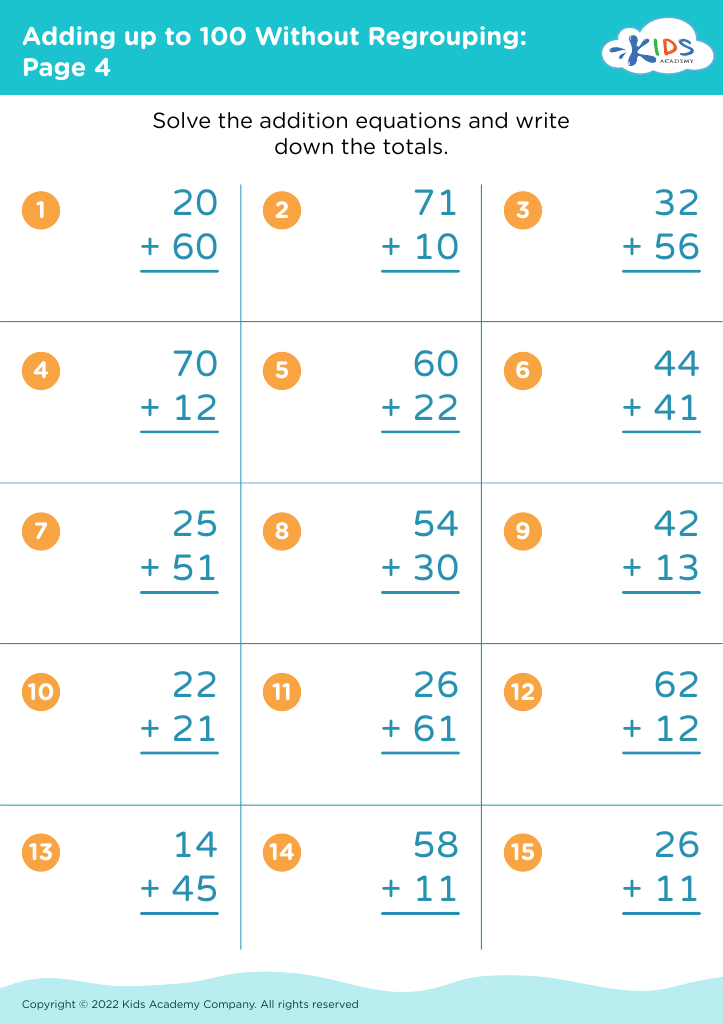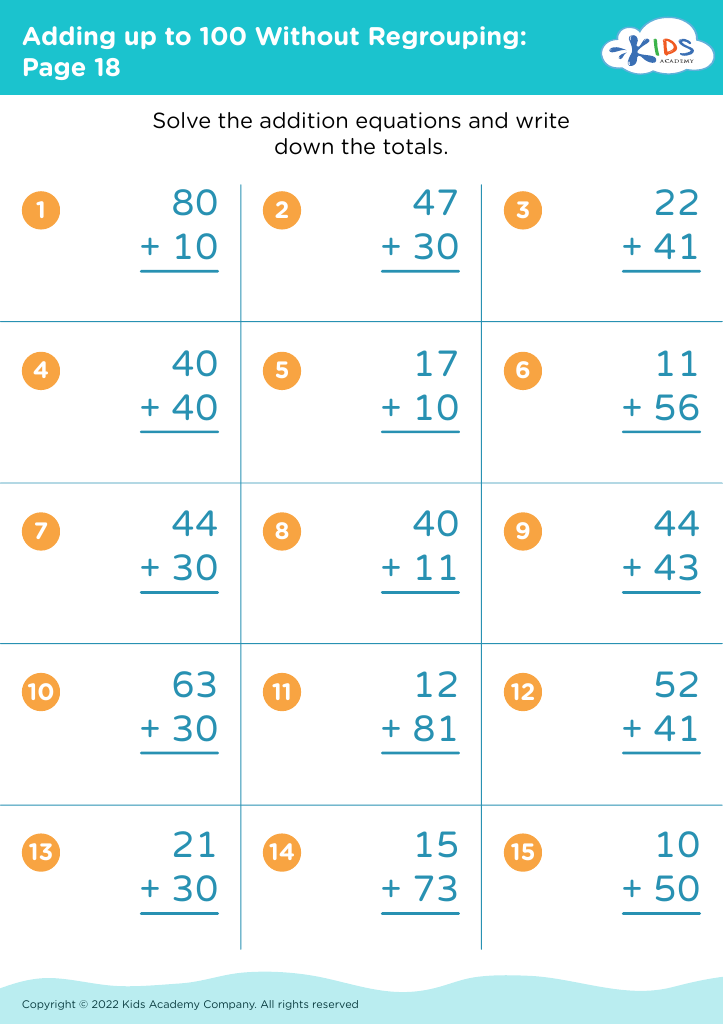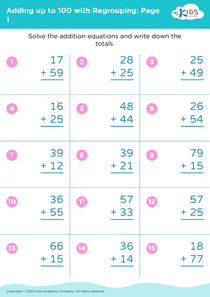Fraction simplification Adding up to 100 Without Regrouping Worksheets for Ages 7-8
9 filtered results
-
From - To
Introduce your child to fraction simplification with our engaging "Fraction Simplification Adding up to 100 Without Regrouping Worksheets" designed for ages 7-8. Developed to build confidence in young learners, these worksheets feature easy-to-follow exercises that focus on simplifying fractions, making math both fun and accessible. Our printable materials not only help children grasp the concept of fractions but also solidify their understanding of adding numbers up to 100 without the need for regrouping. Perfect for classroom activities or at-home practice, these worksheets provide a comprehensive approach to strengthening essential math skills in a supportive, stress-free environment.
Fraction simplification and the ability to add numbers up to 100 without regrouping are cornerstones of early mathematical education that parents and teachers should prioritize for children aged 7-8. These skills lay the foundation for advanced numeric comprehension, crucial for later math success. Simplifying fractions helps children understand the essence of fractions and equips them with the mental agility to deal with higher level math. It fosters logical thinking and analytical skills, and makes comparing and operating with fractions easier.
Adding numbers up to 100 without regrouping strengthens arithmetic skills and boosts a child's confidence in handling sums independently. Mastery of these skills leads to better problem-solving abilities, as children learn to approach numbers in various combinations and simplified formats strategically. Moreover, it helps in understanding place value, further aiding in more complex operations like subtraction and multiplication.
From a broader perspective, both skills contribute to practical life applications, such as budgeting money, measuring ingredients, or splitting items evenly, underscoring their utility beyond the classroom. Prioritizing these skills in early education enables a strong mathematical foundation, ensuring that children are well-prepared for future academic challenges and daily life problem-solving.
